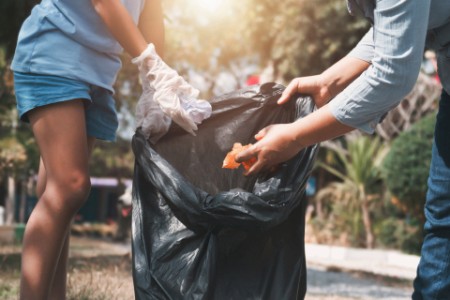We believe that there are three principal takeaways from the report:
- Separate waste management collection is the best way to achieve more, and higher-quality, recyclables. While sorting technology is improving, more effective sorting by households will deliver higher-quality recyclables for lower financial investment compared with machines.
- Governments and municipal authorities must take an integrated approach to separate collections. The four factors that underpin success are: economic incentives, customized facilities, engaging communication and legal enforcement. People need incentives to collect waste in the right way and the facilities to do so. They should also receive communication that explains why separate waste collection is important. If they fail to comply, they should face penalties.
- The European Waste Framework Directive broadens the scope of materials to be collected separately. Significantly, our study focuses on bio-waste, plastics and textiles, which will be subject to new obligations over the coming years.
Our report helps to accelerate the Green Deal and the circular economy plans of the European Commission by focusing on more efficient waste collection. It also explains the actions Member States should take to comply with the new legislation and ensure that their households and municipalities are also compliant.
Separate waste collection does not necessarily cost more than combined waste collection. What it does require, however, is for households and municipalities to be both disciplined and well organized. Since Member States are at different stages of the sustainable waste management journey, some will have to make greater changes than others when it comes to implementing the new legal regulations.
Separate waste collection is the foundation of a more sustainable society because it will lead to circular resources as well as the development of more – and higher quality – recycled materials. Essentially, the circular economy is a loop that goes from production, to consumption, to waste management and back to consumption again. As households sort more, the quality of recycled materials will increase and producers will be more likely to integrate them into their products. This, in turn, will trigger the comprehensive upgrade of recycled products, meaning that more materials are recycled throughout the loop.
The European Union is already recognized as a leader in waste management around the world. The revised Water Framework Directive and the Circular Economy Action Plan are lifting the bar even higher. EU citizens will have both the obligation and the opportunity to sort more of their recyclables. At the same time, they will have the satisfaction of knowing they are improving waste management practices and supporting the transition to a circular economy. Through their actions, they will have a positive environmental impact and help to build a more sustainable future for all.
Lead Author: Edward Sims, Senior Manager at EY – Leader of EY’s Global Centre of Excellence on the Circular Economy
Co-Author: Sophie Chirez – Leader, EY Belgium Climate Change and Sustainability Team


